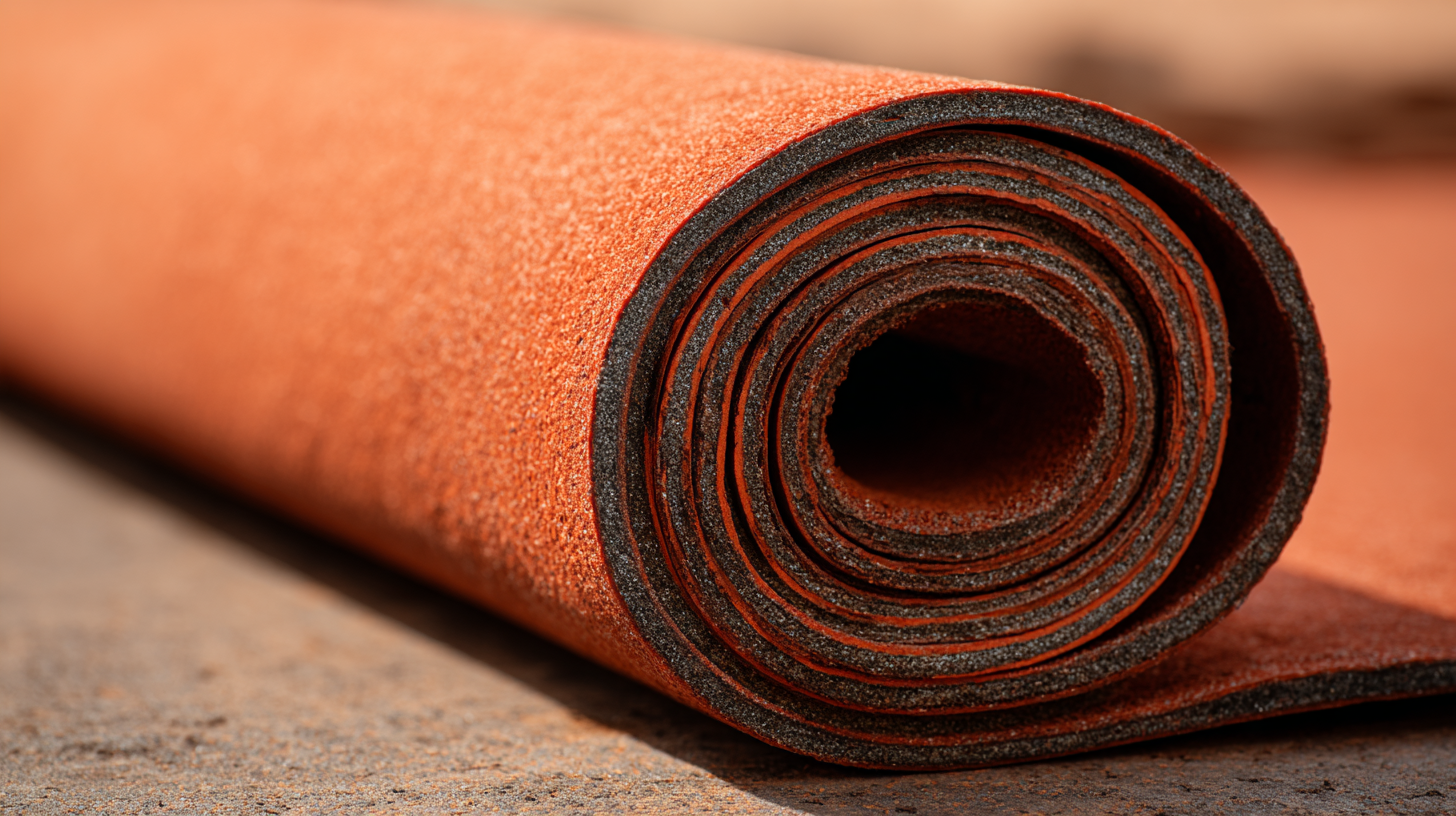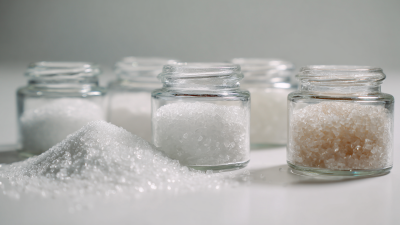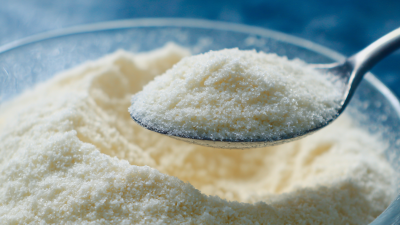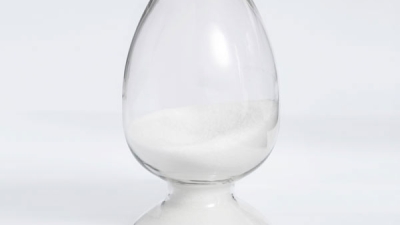Exploring How Water Blocking Agents Enhance Durability and Longevity in Construction Applications
Table of Contents
- The Role of Water Blocking Agents in Construction Material Longevity
- Understanding the Mechanisms of Water Damage in Buildings
- Evaluating Different Types of Water Blocking Agents
- Real-World Applications: Success Stories of Water Blocking in Construction
- Challenges and Solutions in Implementing Water Blocking Technologies
- Exploring Cationic Polyacrylamide: Market Trends and Future Projections in Wastewater Treatment and Industrial Applications
- FAQS
- Conclusion
- Related Posts
When it comes to construction, making sure buildings are durable and last a long time is super important — especially in places where moisture tends to creep in. That’s where Water Blocking Agents really come in handy. They help improve the performance of construction materials by stopping water from seeping in, which, if left unchecked, can cause pretty serious damage over the years. I recently read in the Global Waterproofing Membrane Market report that demand for these kinds of moisture control solutions is expected to rise quite a bit. That’s mainly because more infrastructure projects are popping up, and there's a big push towards more sustainable building practices. Over at QINGDAO OUBO CHEMICAL CO., LTD, we’ve been around since 2011, focusing on creating top-notch chemical solutions like cationic, anionic, and nonionic polyacrylamides. These materials are great as Water Blocking Agents. By incorporating these advanced chemicals into construction, we don't just boost the strength of structures — we also help buildings stand the test of time, which is a big step toward a greener, more sustainable future in the industry.

The Role of Water Blocking Agents in Construction Material Longevity
 Water blocking agents really do a key job when it comes to making construction materials last longer. They help stop moisture from sneaking in, which is a big deal because water can cause all sorts of problems—think rust, mold, or damage from freeze-thaw cycles. When you add these agents into things like concrete, sealants, or coatings, they act like a shield, keeping water out and helping the structure stay solid over time. Not only does this mean the materials won't wear out as fast, but it also cuts down on the need for constant repairs and replacements—which is a big money saver.
Water blocking agents really do a key job when it comes to making construction materials last longer. They help stop moisture from sneaking in, which is a big deal because water can cause all sorts of problems—think rust, mold, or damage from freeze-thaw cycles. When you add these agents into things like concrete, sealants, or coatings, they act like a shield, keeping water out and helping the structure stay solid over time. Not only does this mean the materials won't wear out as fast, but it also cuts down on the need for constant repairs and replacements—which is a big money saver.
On top of that, how well these water-blocking stuff works really depends on what they’re made of and their specific features. Some are designed to be super hydrophobic, basically pushing water away at a tiny, molecular level. Others might actually swell when they get wet, forming a kind of barrier. This variety makes it possible to pick the right solution for different environments—whether it’s a humid coastline or a dry area where a sudden rainstorm could cause issues. When builders start using these smart solutions in their projects, they can make sure their structures hold up over the long haul, handling whatever Mother Nature throws at them, and basically just lasting way longer and performing better overall.
Understanding the Mechanisms of Water Damage in Buildings
Water damage in buildings? Yeah, it's a pretty big deal. Not only does it threaten the stability of the structure, but it can also pose serious health risks for anyone inside. The EPA mentions that moisture-related problems are responsible for mold growth in roughly 30% of buildings across the U.S.—so, it's more common than you might think. Water sneaks in through all sorts of ways—leaks, flooding, even that sneaky condensation—leading to expensive repairs and potential health hazards. That's why understanding how this happens is so important if you want to keep things protected.
Lately, using water-blocking agents has become pretty popular in construction circles. These chemicals basically create a barrier, stopping water from getting into the building materials in the first place. There was a study by the National Association of Home Builders that showed using these agents could extend a building’s life by up to 50%. Cool thing is, it makes the building more durable and also helps cut down on maintenance costs over time.
**Pro tip:** Make it a habit to check your building’s outside for any cracks or gaps—these tiny openings are often the sneaky entry points for water. Sealing them up with the right waterproofing stuff is a simple way to cut down on water damage risks.
And don’t forget about drainage. Proper drainage is key. The American Society of Civil Engineers suggests keeping at least a 2% slope away from your foundation to help water flow away smoothly, which greatly lessens the chances of water pooling around your building and causing trouble.
Evaluating Different Types of Water Blocking Agents
When it comes to making buildings last longer, choosing the right water blocking agents is pretty much a game-changer. There are a bunch of options out there, each with their own quirks and strengths tailored for different situations.
 For example, polymer-based water blockers are really showing promise. I read in a report by MarketsandMarkets that the global market for polymer additives is expected to hit around $60.3 billion by 2027 — which just goes to show how much we're leaning on high-tech materials these days. These polymers do a great job of stopping water from seeping in, helping structures in rainy or humid climates stay strong and last longer.
For example, polymer-based water blockers are really showing promise. I read in a report by MarketsandMarkets that the global market for polymer additives is expected to hit around $60.3 billion by 2027 — which just goes to show how much we're leaning on high-tech materials these days. These polymers do a great job of stopping water from seeping in, helping structures in rainy or humid climates stay strong and last longer.
 On the flip side, mineral-based waterproofing agents, like bentonite clay, are also worth considering. The National Ready Mixed Concrete Association mentioned that using these can cut down water permeability in concrete by as much as 90%. That’s a pretty huge boost to a structure’s strength, not to mention it can save you a ton of money on repairs down the line.
On the flip side, mineral-based waterproofing agents, like bentonite clay, are also worth considering. The National Ready Mixed Concrete Association mentioned that using these can cut down water permeability in concrete by as much as 90%. That’s a pretty huge boost to a structure’s strength, not to mention it can save you a ton of money on repairs down the line.
When you compare these options, it’s clear that both have their perks. Still, the best choice really depends on the kind of environment you're working with and just how tough you need the structure to be. Getting familiar with these differences is pretty important for anyone in construction who’s trying to build stuff that really lasts and stands the test of time.
Real-World Applications: Success Stories of Water Blocking in Construction
Water blocking agents have really become a game-changer when it comes to making construction projects last longer and stay more durable. You've probably seen how these materials actually make a visible difference in real-world projects—like when cationic polyacrylamide is used to stabilize soil, especially in places that see a lot of rain. It helps cut down water seepage, which not only keeps the structures intact but also helps the materials last way longer. It’s pretty impressive how simple solutions like these can have such a big impact.
Here at Qingdao Oubo Chemical Co., Ltd., we’ve been around since 2011, and we’re all about providing top-notch polyacrylamide products that meet the needs of today’s construction scene. Whether it’s our cationic, anionic, or nonionic polyacrylamide formulas, they’re all great options for water blocking. They work well in new builds or when you’re renovating, no matter what. We’ve had clients tell us stories about how our products helped their projects stand strong against tough weather conditions—sort of like the unsung heroes in construction. It really shows how vital water blocking agents are in building modern, resilient structures.
Challenges and Solutions in Implementing Water Blocking Technologies
When it comes to using water blocking tech in construction, there are quite a few hurdles that need to be tackled before we can really tap into its full potential. One of the biggest issues? The upfront cost. I mean, according to a report from the Global Construction Review, you might end up spending around 30% of your project's budget just to get these advanced materials integrated properly, which honestly puts a lot of contractors off from even trying. And then there's the tricky part of applying these products — getting the seals just right and making sure everything sticks and works correctly isn’t always straightforward, especially if the team isn’t super trained in the process.
On top of that, these water blocking agents can behave pretty differently depending on the environment. The American Concrete Institute points out that extreme temperatures or really damp conditions can cause these materials to weaken over time, which kinda defeats the purpose. So, to really make this work, ongoing training for workers is a must — so they know what to look out for and how to handle it. Plus, investing in research to develop formulations that can stand up better against tough conditions is definitely a step in the right direction. If we focus on these areas, I think the construction world can better embrace water blocking technologies — leading to sturdier, longer-lasting builds, no doubt.

Exploring Cationic Polyacrylamide: Market Trends and Future Projections in Wastewater Treatment and Industrial Applications
Cationic polyacrylamide (CPAM) has emerged as a pivotal player in wastewater treatment and various industrial applications. Characterized by its white granular form and linear high molecular structure, CPAM is particularly valued for its solubility in water and non-toxic, odorless nature. These properties make it an ideal choice for enhancing the efficiency of sludge dewatering, improving sedimentation processes, and flocculating suspended solids in treatment facilities. Its positive charge active groups effectively bond with negatively charged particles, ensuring superior performance in challenging conditions.
Recent market trends indicate a growing demand for cationic polyacrylamide, driven by increasing regulations surrounding wastewater discharge and the need for sustainable industrial practices. As industries strive for eco-friendliness, CPAM stands out due to its inability to dissolve in organic solvents like ethanol and acetone, making it safer for both human use and the environment. With advancements in polymer technology, future projections suggest a continued rise in the utilization of CPAM across sectors, such as oil recovery, textile, and mining, where efficient water treatment solutions are increasingly critical. The trajectory of CPAM in these markets highlights its versatility and essential role in sustainable development initiatives.
FAQS
: Water blocking agents are substances used in construction materials to prevent moisture infiltration, which is essential for enhancing the longevity of materials and safeguarding structural integrity.
These agents create a barrier that limits water ingress, thereby preventing issues like corrosion, mold growth, and damage from freeze-thaw cycles, ultimately extending the materials' lifespan.
By reducing water damage, these agents lead to decreased repair and replacement needs, resulting in significant cost savings over time.
There are several types of water blocking agents, including polymer-based and mineral-based solutions, each with unique properties tailored for specific construction applications.
The global market for polymer additives is expected to reach $60.3 billion by 2027, indicating an increasing reliance on advanced materials like these for construction.
Mineral-based agents, such as bentonite clay, can reduce water permeability in concrete by up to 90%, significantly enhancing structural integrity and lowering future repair costs.
The choice depends on specific environmental conditions and the durability requirements of the project, as different agents perform better in various scenarios.
Yes, the versatility of these agents allows them to be effective in different environments, from humid coastal areas to arid regions where sudden rain can pose challenges.
Some agents are hydrophobic and repel water at a molecular level, while others may swell upon moisture exposure to create a physical barrier.
Understanding the unique properties and effectiveness of different agents helps professionals select the best solutions for building resilient structures that withstand environmental challenges.
Conclusion
You know, in construction, Water Blocking Agents are pretty much a game-changer when it comes to making materials last longer and stay tougher over time. They basically act by stopping water from seeping in, which is a big deal for protecting buildings from all kinds of moisture-related issues. It's really important to understand how water damage works so you can pick the right Water Blocking Agent — because there are different kinds out there, each with its own quirks tailored to specific construction needs.
At QINGDAO OUBO CHEMICAL CO., LTD, they provide top-quality cationic, anionic, and nonionic polyacrylamides that work great as Water Blocking Agents across a bunch of different applications. When you look at some real-life success stories, you can see just how much of an impact these solutions can have on construction projects. Sure, implementing them can come with its challenges, but new innovations are always popping up to make things easier. All in all, these Water Blocking Agents are really making a difference in the industry and helping projects stay protected longer.
Related Posts
-

The Ultimate Checklist for Selecting the Right Mixed Polyacrylamide for Your Business Needs
-

How to Maximize After Sales Support and Minimize Maintenance Costs for Best Apam Anionic Polyacrylamide
-

How to Optimize Your Processes with Best Anionic Polyacrylamide Tech Grade for Maximum Efficiency
-

Choosing the Right Manufacturer for Best High Molecular Weight Anionic Polyacrylamide with Industry Insights
-

How to Source the Best 99 Percent Pure Polyacrylamide for Your Business
-

Unlocking the Advantages of Polyacrylamide Complex: A Game Changer for Industry Efficiency
Blog Tags:

Liam
-

Phone
-

E-mail
-

Whatsapp
-

WeChat
Jessy Lin
Paul Zhou:8613356391894 Eric Wong:8615963245439Emily Wu:8617866856171
-

WeChat
Paul Zhou

-

WeChat
Eric Wong

-

WeChat
Emily Wu









